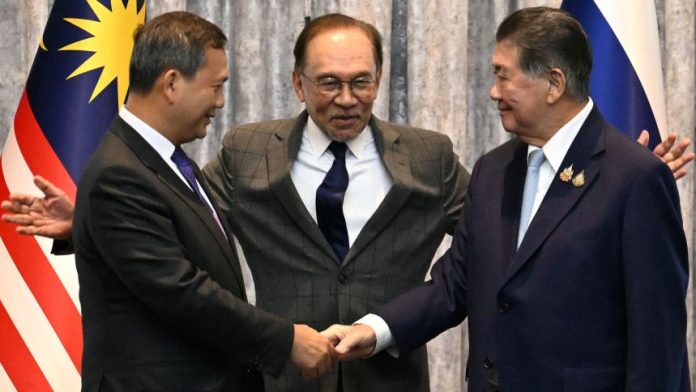Thailand and Cambodia have reached an agreement on an immediate and unconditional ceasefire, ending five months of bloody clashes on the border, Malaysian Prime Minister Anwar Ibrahim said on Monday, acting as a mediator in talks within the Association of Southeast Asian Nations (ASEAN).
The ceasefire will take effect at midnight on Tuesday local time. The leaders of Cambodia and Thailand, Hun Manet and acting Prime Minister Phumtham Wechayachai, confirmed their readiness for a peaceful settlement by shaking hands at the final press conference.
Anwar Ibrahim stressed the importance of the agreements reached in reducing tensions and ensuring security. Military representatives from both countries will hold further meetings, and the foreign and defence ministers have been tasked with developing a mechanism for implementing and monitoring the ceasefire.
Hun Manet expressed hope for the restoration of bilateral relations and the return of some 300,000 evacuees. Phumtham Wechayachai, in turn, said that the peace agreement reflects Thailand’s commitment to a diplomatic solution to the conflict.
Start of clashes
Armed clashes began last Thursday after Thai soldiers were blown up by a landmine. Both sides accuse each other of provoking the conflict, which has claimed the lives of at least 35 people and forced more than 260,000 to flee their homes. Ambassadors were recalled and Thailand closed all border crossings, except for passes for Cambodian workers.
The talks in Malaysia took place amid pressure from US President Donald Trump, who threatened to suspend trade agreements if the conflict was not resolved. According to a joint statement, the US and China acted as mediators at the meeting, which lasted more than two hours and was attended by their ambassadors.
The border conflict between Thailand and Cambodia has a long history, but the current flare-up is the most serious in a decade. The previous escalation in May led to the death of a Cambodian soldier and diplomatic tensions.
